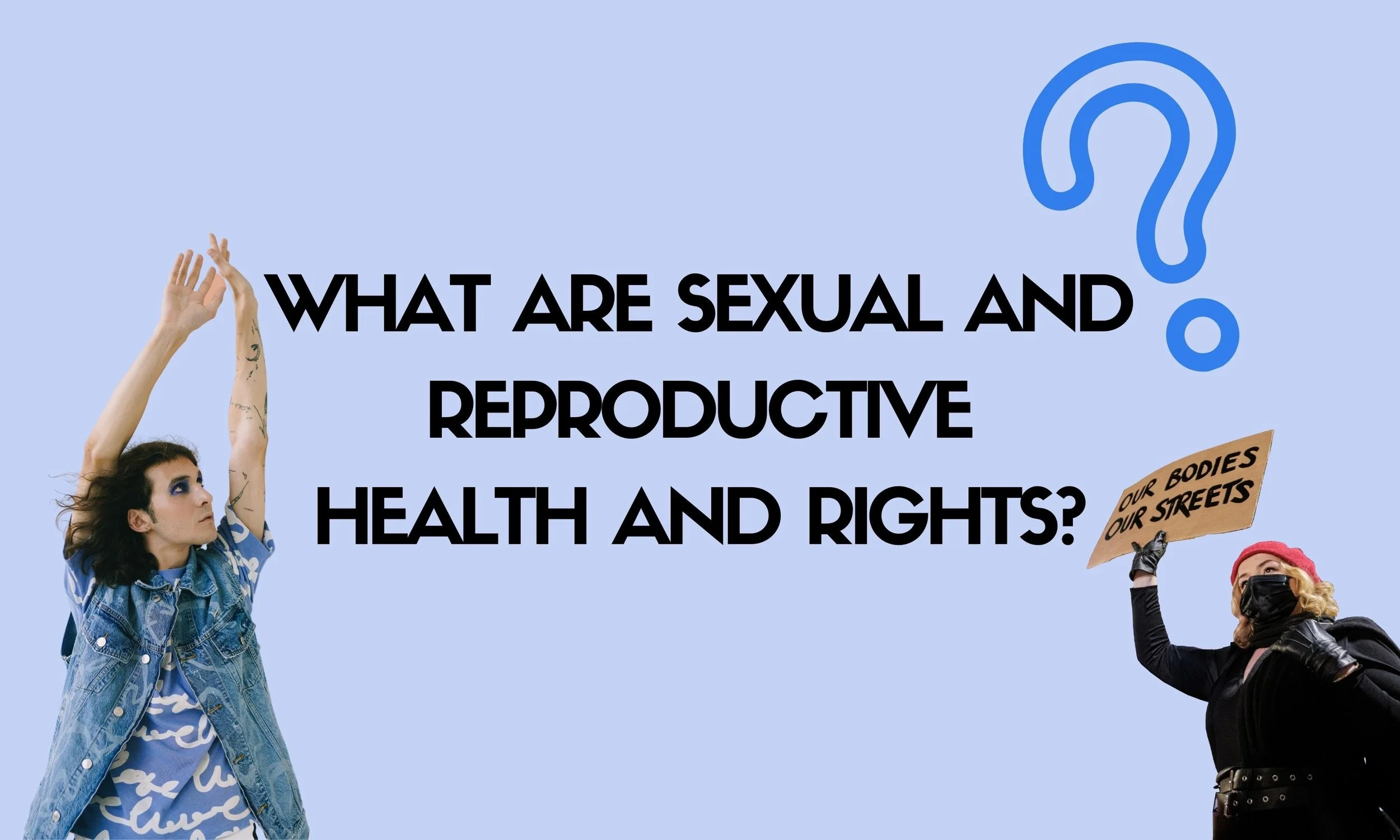Sexual Rights are Human Rights
December is Universal Human Rights month. After a year that meant the transgression of women’s rights and reproductive rights, the overturn of Roe V. Wade and making abortion rights illegal in many states, it’s the perfect moment to remind ourselves of what our sexual and reproductive health and rights are.
What are “Sexual Rights”?
“Sexual rights are constituted by a set of entitlements related to sexuality that emanate from the rights to freedom, equality, privacy, autonomy, integrity and dignity of all people.”
— International Planned Parenthood Federation’s Sexual Rights Declaration
What are Sexual and Reproductive Health and Rights (SRHR)?
SRHR are the different human rights related to sexuality and reproduction such as sexual health, sexual rights, reproductive health and reproductive rights. Everyone is entitled to them as they ensure physical, emotional, mental and social well-being.
Your sexual and reproductive rights, according to the European Institute for Gender Equality, include:
The right to the highest attainable standard of health in relation to sexuality, including access to sexual and reproductive healthcare services
The capacity to seek, receive and impart information in relation to sexuality
The right to access sexuality education
Free choice of partner
The right to decide to be sexually active or not
The right to consensual sexual relations
The right to consensual marriage
The right to decide whether or not, and when, to have children
The right to pursue a satisfying, safe and pleasurable sexual life
How do people benefit from SRHR?
The importance of these lies on the powerful reminder that these are NOT opinions; these are rights you have as an individual in this world and it’s OKAY to advocate for them. In many parts of the world these rights are not respected for certain groups of people and advocating for them on your own might be dangerous, but there are organizations around the world working to change this.
Allowing people to know their sexual and reproductive rights can prevent unintended pregnancies, improve maternal health, prevent and treat different STI’s as HIV/AIDS, and help end discrimination and stigma associated to sexuality.
“Sexual rights protect particular identities, but reach beyond this and protect all people’s right to be allowed to fulfill and express their sexuality, with due regard for the rights of others and within a framework of non-discrimination.”
— International Planned Parenthood Federation’s Sexual Rights Declaration
Women and children are among the many groups that have been historically denied their sexual rights. Ensuring women’s and girls' sexual and reproductive rights makes it easier for them to access information that will be essential in decision-making about their own bodies. It gives them the possibility to plan whether they want to have a family and if so how many children to have, and also when to get pregnant. For young people, knowing their rights at an early stage of life gives them the opportunity to be aware of their rights, to have the power of choice and control over their future.
Who benefits from SRHR?
Marginalized populations (including LGBTQ+ people, displaced people and refugees, racial and ethnic minorities, people with disabilities, sex workers, people who use drugs, immigrants, and Indigenous peoples) who find barriers to having sexual and reproductive health services.
How to take action?
Calling out worldwide leaders to invest in SRHR for the most vulnerable communities is always the go-to option. Another way you can take action is by donating to organizations that support and fight for sexual and reproductive health and rights by directly investing time and resources in educating marginalized populations.
Here are a few options you may want to have in mind:

